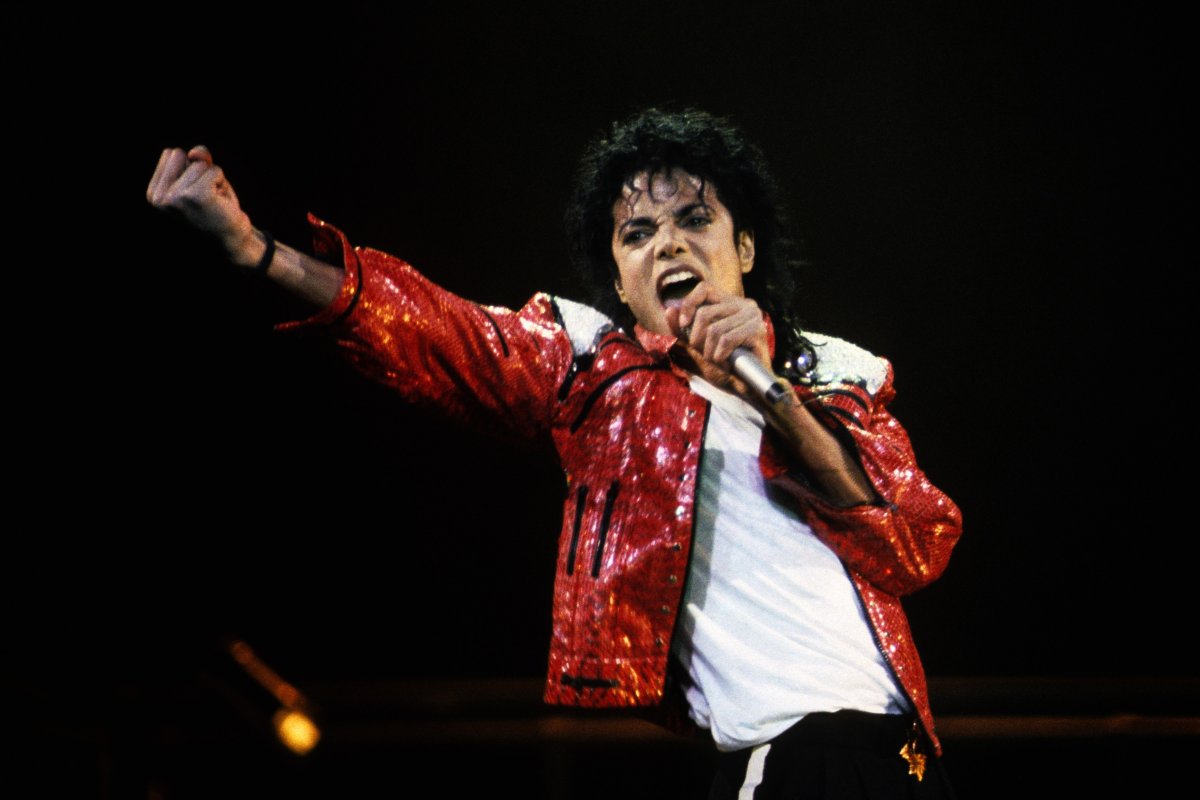Michael Jackson's 1990s protest anthem "They Don't Care About Us" has been hailed on social media for being as socially relevant today as when it was first released, in an environment of increasingly contentious debate about "woke" culture.
The track was taken from King of Pop Jackson's ninth studio album, 1995's HIStory: Past, Present and Future, Book I. The single was released the following year and peaked at No. 30 on the Billboard Hot 100 chart.
It featured the memorable hook: "Skinhead, dead head. Everybody's gone bad. Situation aggravation. Everybody, allegation. In the suite, on the news. Everybody, dog food. Bang bang, shot dead. Everybody's gone mad. All I wanna say is that they don't really care about us."

Another portion of the music video was recently shared on Twitter. In it, Jackson sang: "Tell me what has become of my rights. Am I invisible because you ignore me? Your proclamation promised me free liberty, no. I'm tired of being the victim of shame. They're throwing me in a class with a bad name. I can't believe this is the land from which I came. You know I really do hate to say it. The government don't wanna see. But if Roosevelt was living. He wouldn't let this be, no, no."
The video was recently shared on Twitter by a Donald Trump-supporting account called @WeAreWoke1776_3. "He tried to tell us.... #Listen," read a caption accompanying the clip of Jackson, who died aged 50 in June 2009.
He tried to tell us…. #Listen pic.twitter.com/hFM2bpzQOC
— We Have It All (@WeAreWoke1776_3) June 14, 2023
While the track was largely seen as a protest against injustice, those reacting to the post appeared to suggest that Jackson was forewarning of more sinister forces.
"He did tried to warn us indeed," said one Twitter user, while another commented: "MJ's music was dangerous to the [controllers], remember that."
Another shared a video clip of Andrew Tate quoting Jackson's track as he railed against being jailed amid the various charges that have been leveled against him in Romania.
Jackson fatally overdosed on propofol given to him by certified doctor, Conrad Murray. Propofol is an injectable drug that promotes relaxation and sleep before surgery, though it was claimed that Jackson had been using the drug to sleep.
Murray was charged with involuntary manslaughter for Jackson's death and sentenced to four years in prison. He served two of the four years.
The Jackson family filed a wrongful death suit against AEG Live in 2013, who they claimed hired Murray as Jackson's doctor, according to ABC News. The Jackson family asked for $1.5 billion from the company. It was proven AEG Live did hire Murray, but at the time of his employment, he was a reputable and responsible doctor. The Jackson family lost the lawsuit.
Most people believe Jackson's death was an overdose, but some conspiracy theories exist. Jackson's own daughter, Paris Jackson, explained his death could have been a murder.
"He would drop hints about people being out to get him," Paris explained to Rolling Stone in her first ever interview in 2017. "And at some point, he was like, 'They're gonna kill me one day.'"
"Because it's obvious," Paris said on why she believes her father was murdered. "All arrows point to that. It sounds like a total conspiracy theory and it sounds like bulls***, but all real fans and everybody in the family knows it. It was a setup. It was bulls***."
Meanwhile, Jackson's enduring track "They Don't Care About Us" surpassed 1 billion views on YouTube in April. The better-known video was filmed on location in Brazil, and was one of two directed by filmmaker Spike Lee.
In the clip, Jackson is seen marching through the streets, leading a large drumline of children and teenagers as he delivers the fiery lyrics. The second version was shot in a prison, and interposed with such imagery as Ku Klux Klan footage, Chinese protests in Tiananmen Square and the beating of Rodney King by Los Angeles police in 1991, among other examples of human rights abuses.
At the time, the video was mired in controversy, with the Brazilian government attempting to ban Jackson from filming in Rio de Janeiro and the Historic Center of Salvador de Bahia, also known as the Pelourinho.
According to the 1998 book Michael Jackson: Making History, when Jackson was asked why he wanted Lee to direct his videos, he said: "'They Don't Care About Us' has an edge, and Spike Lee had approached me.
"It's a public awareness song and that's what he is all about. It's a protest kind of song...and I think he was perfect for it."
Over the years, the track has seen renewed interest, most notably during Black Lives Matter protests in 2014 and 2015, as well as in 2020.
While Jackson's legacy continues to be celebrated around the world, others have raised the issue of the multiple child sexual abuse accusations made against him, though he was never found guilty in a court of law.
More details of alleged abuse committed by the chart-topping musician were highlighted after his death in the 2019 HBO documentary Leaving Neverland. Jackson always denied the allegations.
Uncommon Knowledge
Newsweek is committed to challenging conventional wisdom and finding connections in the search for common ground.
Newsweek is committed to challenging conventional wisdom and finding connections in the search for common ground.
About the writer
Ryan Smith is a Newsweek Senior Pop Culture and Entertainment Reporter based in London, U.K. His focus is reporting on ... Read more





